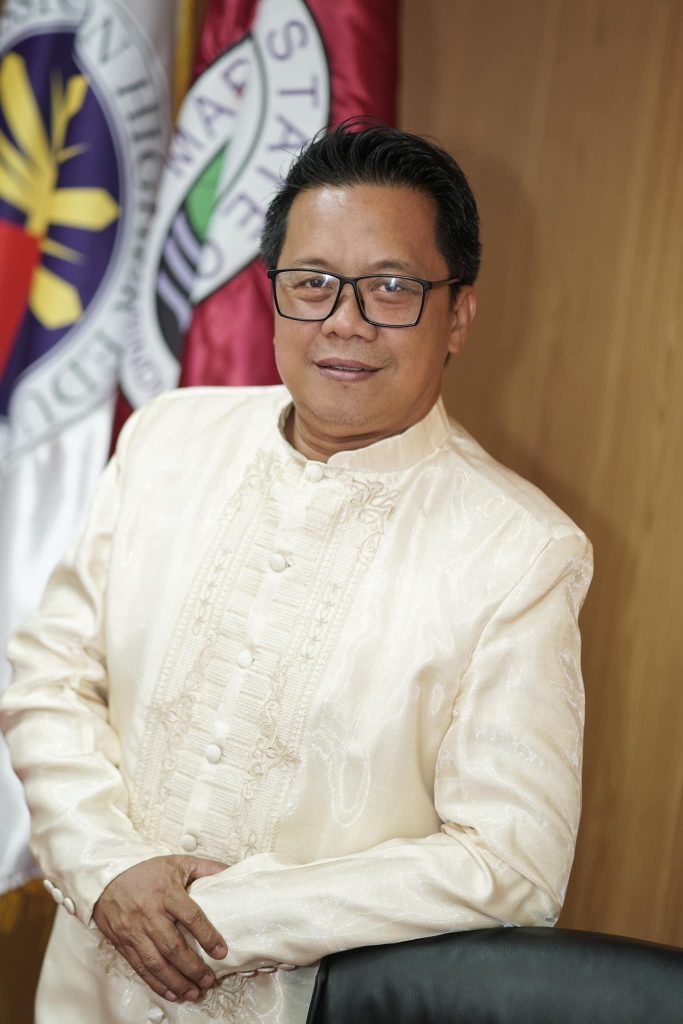About Us

Asst. Prof. Ar. Maynard M. Muhi
Unit Head
Purpose
The Project Management Unit (PMU) is established to provide comprehensive oversight, planning, and execution of all construction, repair, and maintenance projects related to the University’s infrastructure. Our mandate is to enhance operational efficiency, ensure compliance with standards, and support the University’s strategic goals through comprehensive project management practices.
Key Objectives of Project Management Unit (PMU)
- Project Governance and Oversight: Implement governance structures and frameworks that ensure projects comply with organizational policies, regulations, and standards.
- Monitor and Control Project Performance: Track the progress of all projects in terms of scope, time, cost, and quality, and take corrective actions when necessary.
- Documentation and Compliance: To maintain rigorous documentation processes, ensuring that all project-related paperwork, including proposals, estimates, and reports, is accurate and compliant with institutional and regulatory requirements.
- Resource Management: Efficiently manage and allocate resources (human, financial, technological) across projects.
- Stakeholder Engagement: Ensure effective communication and collaboration among all stakeholders, including contractors, faculty, and administrative personnel, ensuring alignment with project goals.
- Quality Assurance: Maintain high standards of quality for project deliverables and ensure consistency across projects.
- Track and Report Project Performance: Establish reporting mechanisms to track project progress and provide regular updates to stakeholders.
- Ensure Effective Project Closeout: Ensure that all projects are formally closed, including the documentation of results, lessons learned, and the formal handover of deliverables.
Key Responsibilities of Project Management Unit (PMU):
1. Project Governance and Oversight
- Establishing Project Management Frameworks: Develop and implement standard project management methodologies, processes, tools, and templates to ensure consistency and best practices across projects.
- Ensuring Compliance and Standards: Monitor adherence to organizational standards, policies, and regulatory requirements in all project activities.
- Project Auditing and Control: Oversee the monitoring of ongoing projects to ensure they are progressing according to plan and help address any issues early on.
2. Project Management
- Project Selection and Prioritization: Establish criteria for selecting and prioritizing projects to align with strategic goals. This includes resource allocation and risk assessment.
- Project Initiation and Planning: Prepare project proposals, work plans, and budgets for all new construction and major repairs. Develop annual procurement plans for maintenance resources.
- Repair and Maintenance Management: Oversee inspections of existing facilities to identify repair needs. Manage the procurement and allocation of resources for maintenance activities.
- Preventive Maintenance: Develop and implement preventive maintenance schedules to ensure the longevity of facilities.
3. Project Monitoring and Reporting
- Tracking Project Progress: Monitor the progress of ongoing projects in terms of schedule, budget, scope, and quality, using metrics and performance indicators.
- Reporting: Provide regular, transparent reports to stakeholders (executive teams, project sponsors, etc.) on project status, risks, and any corrective actions taken.
- Project Health Checks: Conduct periodic health checks and assessments of projects to identify potential issues or improvement opportunities.
4. Risk and Issue Management
- Risk Identification and Mitigation: Develop a framework for identifying and assessing project risks early on and recommend strategies for mitigation.
- Issue Resolution: Assist project teams in resolving issues that may impact project progress and outcomes. Provide guidance on escalated issues that cannot be resolved at the project level.
5. Project Closeout and Evaluation
- Project Closure: Ensure formal project closeout procedures are followed, including the final delivery of all project deliverables, approvals, and the release of project resources. Conduct punch listing and final inspections prior to project turnover to ensure all issues are resolved.
- Post-Project Reviews: Conduct post-project reviews to evaluate project performance, document lessons learned, and assess the achievement of project objectives.
- Final Review and Handover: Manage the release of retention fees following project completion.
Governance and Reporting: The PMU will report to the University’s top management, providing regular updates on project statuses, budget expenditures, and compliance with quality standards. This transparency will support informed decision-making and strategic planning.
Commitment to Excellence: The PMU is committed to fostering a culture of excellence, collaboration, and continuous improvement in all project management practices, ensuring the University’s facilities support its educational mission effectively and sustainably.
In summary, the MarSU Project Management Unit plays a key role in ensuring that all projects are executed efficiently, align with institutional goals, and deliver value to the university or college. It serves as the central authority for project governance, providing strategic oversight and ensuring that projects are executed according to best practices and institutional priorities.

